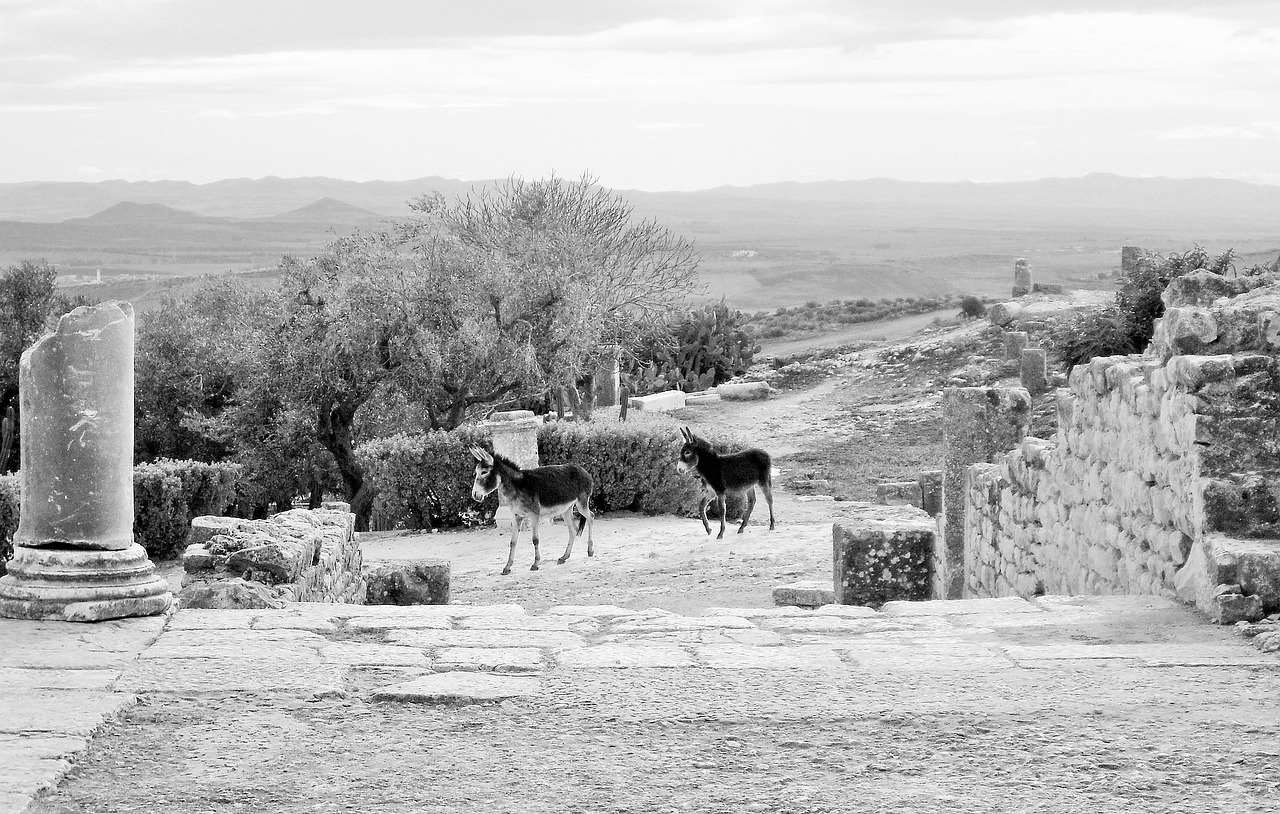Safety Tips for Remote Workers in Tunisia
Remote work has become increasingly popular, allowing individuals to work from the comfort of their own homes or while traveling. Tunisia, with its beautiful landscapes and rich history, is an attractive destination for remote workers. However, it’s important to prioritize safety while working remotely in Tunisia. In this article, we will provide you with essential safety tips to ensure a secure and enjoyable remote work experience.
Local Laws and Regulations
Before starting your remote work journey in Tunisia, it’s crucial to familiarize yourself with the local laws and regulations. Understanding the legal framework will help you navigate any potential challenges and ensure compliance with Tunisian authorities. Research the visa requirements, tax obligations, and any permits necessary for remote work in the country. The Tunisian Ministry of Foreign Affairs website is a reliable source of information for legal requirements.
- Visa Requirements: Check the Tunisian embassy or consulate website in your home country to determine the appropriate visa for remote work purposes. Ensure you have the necessary documents and meet the eligibility criteria.
- Tax Obligations: Familiarize yourself with Tunisia’s tax regulations for remote workers. Determine if you are required to pay taxes in Tunisia, your home country, or both, and consult with a tax professional if needed.
- Permits: Inquire about any permits or licenses required for remote work activities in Tunisia. Depending on the nature of your work, you may need specific permits or registrations.
Secure Internet Connection
A reliable and secure internet connection is essential for remote work. When working in Tunisia, take the following steps to ensure your internet connection is safe and protected:
- Use a Virtual Private Network (VPN): Utilize a VPN service to encrypt your internet traffic and protect your data from potential hackers or surveillance. Choose a reputable VPN provider and connect to secure servers.
- Secure Wi-Fi Networks: Be cautious when connecting to public Wi-Fi networks, such as those in cafes or hotels. Verify the network’s legitimacy and use a VPN when accessing sensitive information.
- Update Security Software: Install and regularly update antivirus and anti-malware software on your devices. This will help protect against potential cyber threats.
Physical Safety
While working remotely, it’s important to prioritize your physical safety. Tunisia is generally a safe country, but taking precautions can help ensure a trouble-free experience:
- Stay Informed: Stay updated on the local news and any security advisories issued by your home country’s embassy or consulate in Tunisia. Be aware of any safety concerns or potential risks in the areas you plan to visit.
- Blend In: Avoid drawing unnecessary attention to yourself by dressing modestly and respecting local customs and traditions. Adapting to the local culture will help you blend in and minimize any potential risks.
- Keep Valuables Secure: Keep your valuables, such as laptops, phones, and passports, secure at all times. Use hotel safes or other secure storage options when necessary.
Health and Medical Considerations
Maintaining good health and having access to medical care is crucial for remote workers. Here are some health and medical considerations to keep in mind:
- Health Insurance: Ensure you have comprehensive health insurance that covers medical expenses in Tunisia. Verify if your insurance provider includes coverage for remote work activities.
- Medical Facilities: Familiarize yourself with the locations of medical facilities, hospitals, and clinics in the areas you plan to stay. Keep a list of emergency contacts and important medical information readily accessible.
- Stay Hydrated: Tunisia’s climate can be hot and dry, especially during summer months. Stay hydrated by drinking plenty of water and avoid prolonged exposure to the sun.
Emergency Preparedness
Being prepared for emergencies is essential, regardless of your location. Follow these guidelines to ensure you are ready for unexpected situations:
- Emergency Contacts: Save important emergency contact numbers in your phone and keep a written copy in case of technology failures. Include local emergency services, your embassy or consulate, and your employer’s contact information.
- Know Your Surroundings: Familiarize yourself with the nearest exits, emergency evacuation routes, and assembly points in your accommodation or workspace. In case of an emergency, remain calm and follow the instructions of local authorities.
- Travel Insurance: Consider obtaining travel insurance that covers emergencies, such as medical evacuation or trip cancellation. Review the policy coverage and ensure it meets your specific needs.
Cultural Sensitivity
Respecting the local culture and customs is essential when working remotely in Tunisia. By being culturally sensitive, you can establish positive relationships and avoid any misunderstandings:
- Learn Basic Arabic Phrases: Learning a few basic Arabic phrases can go a long way in showing respect and building rapport with locals. Greetings such as “hello” (marhaba) and “thank you” (shukran) are always appreciated.
- Observe Local Customs: Familiarize yourself with Tunisian customs and traditions. Show respect by dressing modestly, especially in religious or conservative areas, and follow any specific cultural norms.
- Be Mindful of Ramadan: During the holy month of Ramadan, Muslims fast from sunrise to sunset. Be considerate of those observing the fast and avoid eating, drinking, or smoking in public during daylight hours.
Image 1: Tunisia

Online Privacy
Protecting your online privacy is crucial when working remotely. Follow these tips to safeguard your personal information:
- Use Strong Passwords: Create unique and strong passwords for your online accounts. Use a combination of letters, numbers, and symbols, and avoid using the same password across multiple platforms.
- Enable Two-Factor Authentication: Enable two-factor authentication whenever possible. This adds an extra layer of security by requiring a second verification step, such as a code sent to your mobile device.
- Avoid Suspicious Links and Emails: Be cautious when clicking on links or opening emails from unknown sources. Phishing attacks are common, so verify the legitimacy of the sender before providing any personal information.
Image 2: Tunisia

Work-Life Balance
Maintaining a healthy work-life balance is essential for remote workers. Follow these tips to ensure you have time for both work and relaxation:
- Establish a Routine: Set specific working hours and create a schedule that allows for breaks and leisure activities. Stick to your routine to avoid overworking or burnout.
- Create a Dedicated Workspace: Designate a specific area for work to separate it from your personal space. This helps create a mental boundary and enhances productivity.
- Take Regular Breaks: Schedule regular breaks throughout the day to recharge and prevent mental fatigue. Use this time to stretch, go for a walk, or engage in other activities you enjoy.
Conclusion
Working remotely in Tunisia can be a rewarding experience, but it’s important to prioritize safety and security. By familiarizing yourself with local laws, ensuring a secure internet connection, and taking precautions for physical safety and health, you can have a successful remote work journey. Remember to be culturally sensitive, protect your online privacy, and maintain a healthy work-life balance. Enjoy the unique blend of work and leisure that Tunisia has to offer.
Image 3: Tunisia

References
– Tunisian Ministry of Foreign Affairs: www.diplomatie.gov.tn
– Centers for Disease Control and Prevention: www.cdc.gov
– U.S. Department of State: www.state.gov
– World Health Organization: www.who.int


